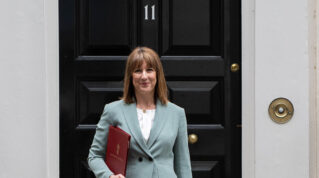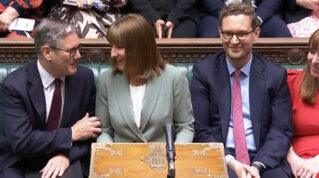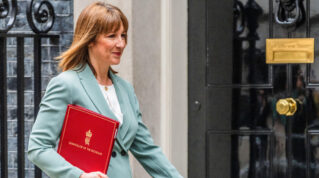Some schools will be short-changed in grant allocations to cover the rise in employer contributions to teachers’ pensions, leaders fear, despite a government pledge to fully fund it.
Last year, the government announced employer contributions to the teachers’ pension scheme would rise by more than 20 per cent this April from 23.6 to 28.6 per cent.
Ministers said they would cover the rise for state schools with £1.1 billion in additional funding.
Full school-level allocations for 2024–25 have not yet been published, but the Department for Education has provided a calculator tool online for schools and trusts to work out what they will receive.
The data is based on allocations data, as funding has not yet been issued.
The grant is calculated based on funding rates for pupils of different ages, with an extra £65 to £100 for each pupil eligible for free school meals.
‘Another £250k shortfall we have to cover’
Leaders believe it is this weighting on free school meals that is skewing the allocations in favour of more deprived schools.

Benedicte Yue, chief financial officer at the River Learning Trust, said schools had been “told by the DfE that the increase in the teacher pension contribution rate would be fully covered”.
But “in our 28 schools, the teacher pension grant is only covering 89 per cent of the additional cost”, leaving them with “another £250,000 shortfall that we need to cover”.
Julia Harnden, funding specialist at the Association of School and College Leaders union, said she had received feedback suggesting schools with high FSM rates “are receiving just about the right amount of funding and those with a lower proportion of FSM-eligible children are less likely to get what they need”.
“The 16-19 funding rates have not yet been published so we do not have a full picture, but the initial indications, based on what we know so far, are that there is not enough money going into the system to afford the cost of the pension contributions in some, and possibly many, schools.”
‘Frustrating’ DfE struggling to allocate money effectively
She added that it was “frustrating that one of the government’s primary responsibilities with education is to distribute the money effectively and fairly, and that they seem to be having so many difficulties doing this”.
Last year, the DfE was forced to re-issue school-level funding allocations data after a mistake that meant it overstated the total schools budget by £370 million.
And just this week the department was forced to delay publishing pupil premium allocations data until May following a “problem” identifying eligible reception pupils.

Paul Whiteman, general secretary at school leaders’ union NAHT, said it was “difficult to understand” how the pupil premium issue had only just emerged “when the data used is from October’s school census.
“This does represent the continuation of a concerning trend of delays when it comes to the Department for Education announcing funding allocations, and this seems to be getting worse every year.”
He warned that leaders still did not have school-level allocations for 2024–25 for several income streams, such as the teachers’ pay grant and universal infant free school meals.
“School leaders shouldn’t have to guess how much funding they’re going to get, and this adds unnecessary stress and workload,” Whiteman added.
Leaders ‘exceptionally concerned’
The news comes after Schools Week revealed how thousands of schools faced “severe financial hardship” because a technical funding change meant that they got a measly 0.5 per cent per-pupil funding increase.
Simon Beamish, chief executive of the Leigh Academies Trust, this week wrote to local MPs to warn funding for his schools would rise by just 0.89 per cent across the trust’s primaries and 1.47 per cent for secondaries, with some individual schools even losing cash.
“I am exceptionally concerned about how we will make ends meet given inflation, salary pressures and the rising cost of energy,” he added.
A DfE spokesperson said “just like the teachers pay additional grant (TPAG) and the national funding formula (NFF), we have allocated additional pensions funding in a way that benefits all schools while providing the most to schools with the greatest need”.
“Schools have autonomy over their spending, including decisions around staffing structures, so funding will never exactly match a school’s precise costs.”
















Your thoughts